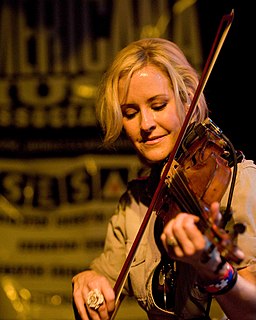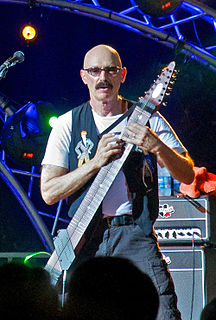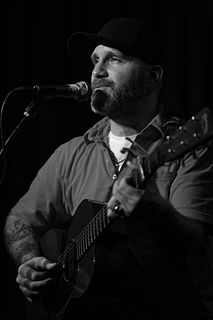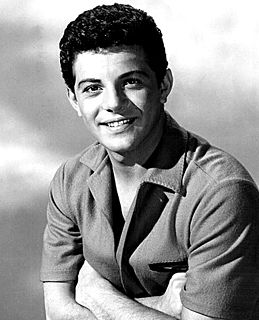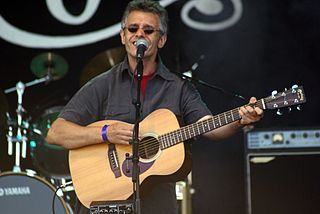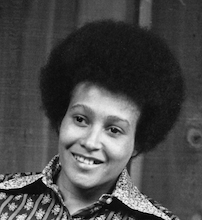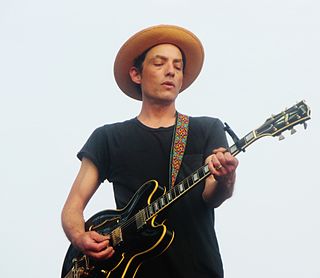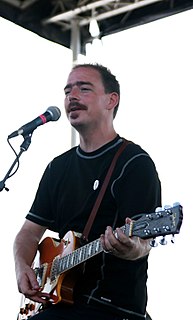A Quote by Martie Maguire
We were playing shows still when we wrote 'Phoebe' and 'Rock All Night.' We got to test those songs in a live setting, so it was nice recording them and knowing which ones really resonated with the crowd.
Related Quotes
And I thought about how many people have loved those songs. And how many people got through a lot of bad times because of those songs. And how many people enjoyed good times with those songs. And how much those songs really mean. I think it would be great to have written one of those songs. I bet if I wrote one of them, I would be very proud. I hope the people who wrote those songs are happy. I hope they feel it's enough. I really do because they've made me happy. And I'm only one person.
There were two recording studios in Bellingham. One was really expensive, a "nice studio." We were at the point where we were young and irreverent. We would scoff at the idea of a nice studio. "Why would you want to go to a nice studio? Oh wow, they have really expensive gear. Ooh, that's really fancy. Well we've got an eight-track. We've got it going on here." Now that we have the resources, we're like, "Oh wow, a nice studio is pretty nice! They do have nice outboards here. It's actually a pretty good place." It's funny how much changes so quickly.
Everybody tends to overplay live. That's just the nature of playing live. And that can be great, but it can also kill something that's special, and intimate, about a recorded version of a song. You find out very quickly which songs you can play, and which songs you do damage to by playing them live.
I recognize them for what they were. 'DeDe Dinah,' 'Ginger Bread,' come on. They're fun things. They're middle of the road. It wasn't really rock and roll. I don't know what it was, but it was something accepted and bought, and people still like them. When I reminiscence on stage, people respond. They really like those songs.
When I received the invitation to "check out" Fairport I knew absolutely nothing about them, all I knew was that they were beginning to establish themselves as an underground favorite, by playing regularly at the UFO club in Covent Garden. But the crowd I was running with at the time were listening to a completely different genre of music. So I had nothing to go on, there was nothing on vinyl, Fairport's recording days were still ahead of them.
When I'm representing my music live I think of it very much in a rock band sense. When I first started doing festivals in the 90s there really weren't other DJs playing the stages I was playing. So I felt I was being afforded an opportunity to kind of make a statement about what DJ music can be live. In the 90s, if you were a DJ you were in the dance tent, and you were playing house music and techno music. There was no such thing as a DJ - a solo DJ - on a stage, after a rock band and before another rock band: that just didn't happen.
I know the songs that Sly wrote still have the meaning for those that are living today that weren't even around when we started playing before, in the beginning. His lyrics, to me, if you listen to them, they can form a lifestyle that will leave you a happier person, a better person on this planet. It's just lyrics to live by.
I'm talking about the '60s really. People go interview these guys and ask them, "Do you still think music can change the world?" I mean, go talk to Graham Nash about that. What's he going to tell you? Ask David Crosby. These guys are still out there. They're playing their hits at Staples Center and those are really valuable songs. I'm talking about a couple of the guys who got knee-deep into really believing music had a great service beyond radio. I believe it did. And I think a lot of those songs are great.
All those experiences were a chance to learn more about music. Playing with the Valley band is like such a "live" band. I mean, really, in many ways Bright Eyes is really a studio project. We form bands to tour, but it really is - you know, we take the songs and we figure out how to decorate them and it's all in the studio, we build the songs that way. Whereas Mystic Valley Band was the exact opposite, where everybody knows what they are gonna be playing on the song and there's sort of a general stylistic approach, and then it's just plug in and play.
There's so much more subtlety to this new recording. There's a subtlety in the playing. There's also a subtlety in the way I approached the singing. The band was able to really capture the feeling of the songs and not really trade anything that we had sort of arranged for the live presentation, but the songs just aren't as loud.
In the case of those solids, whether of earth, or rock, which enclose on all sides and contain crystals, selenites, marcasites, plants and their parts, bones and the shells of animals, and other bodies of this kind which are possessed of a smooth surface, these same bodies had already become hard at the time when the matter of the earth and rock containing them was still fluid. And not only did the earth and rock not produce the bodies contained in them, but they did not even exist as such when those bodies were produced in them.
